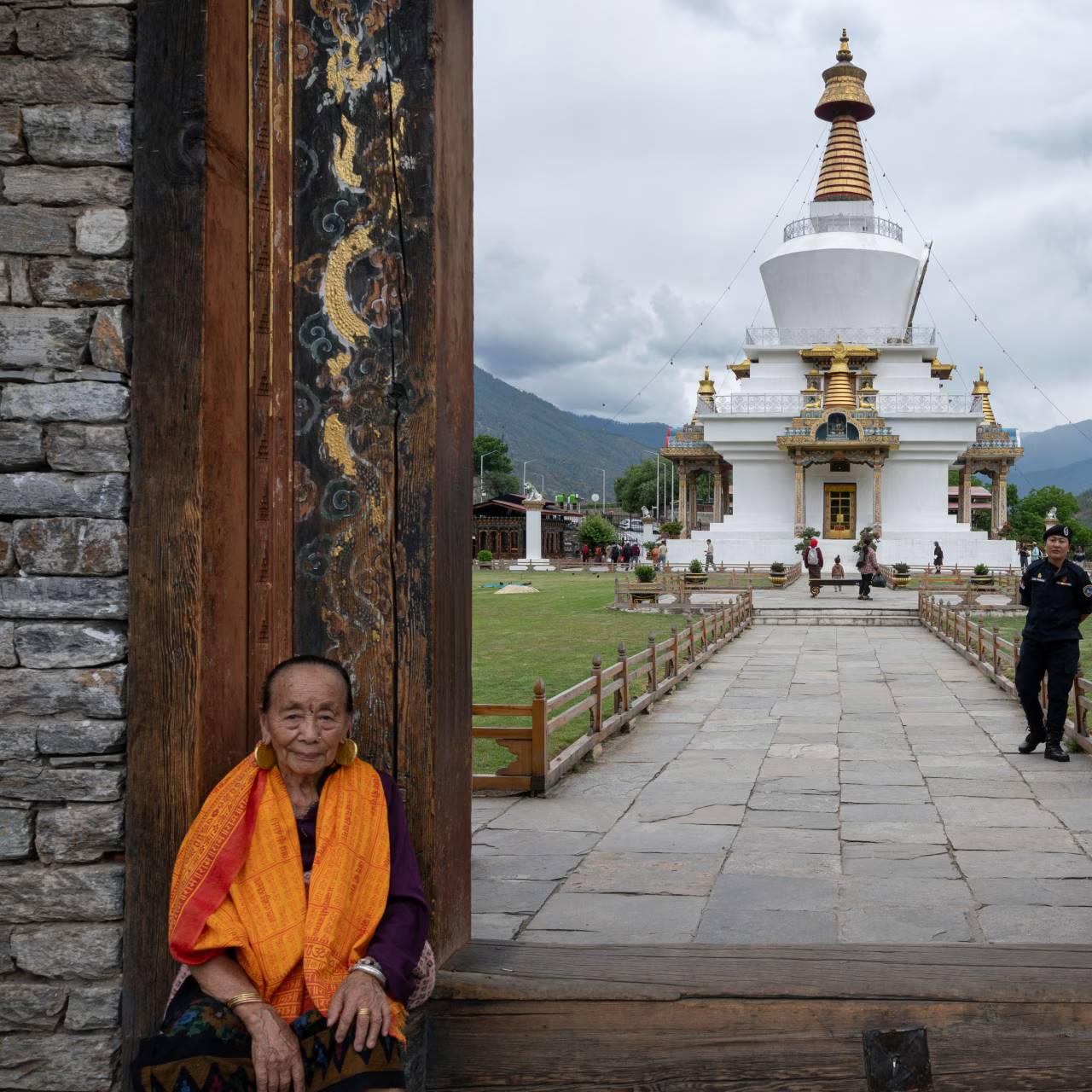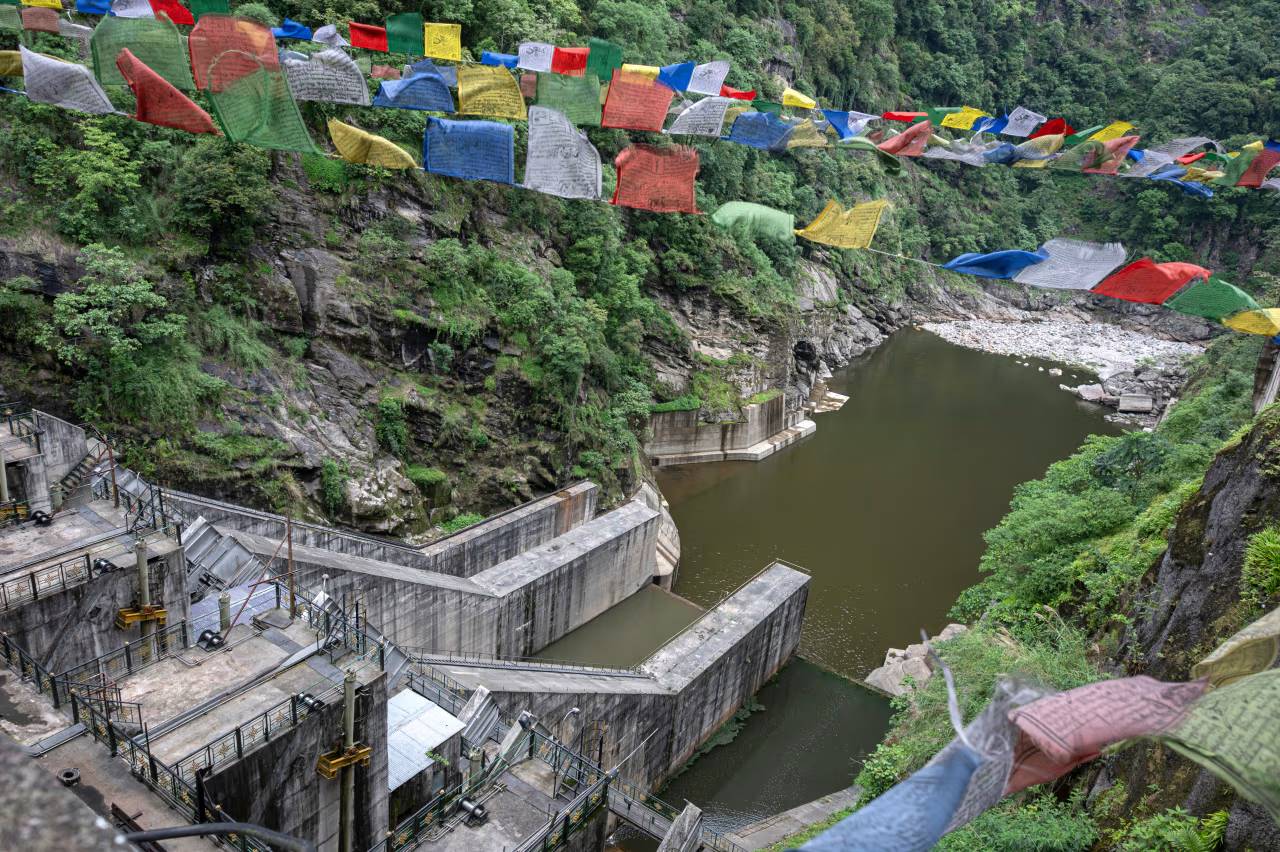Wall Street Journal: Small country Bhutan bets on Bitcoin mining
Original author: Shan Li
Original translation: TechFlow

Bhutan is still dominated by ancient traditions, making it an unlikely cryptocurrency pioneer.
Thimphu, Bhutan — This small Himalayan country known for its stunning scenery and high national happiness has recently acquired a new title: cryptocurrency pioneer.
According to cryptocurrency platform Arkham, Bhutan currently holds $1.3 billion worth of Bitcoin reserves, equivalent to about 40% of the country’s gross domestic product (GDP). According to Arkham’s data, this makes Bhutan the third largest Bitcoin holder among governments worldwide.
Unlike major cryptocurrency holders like the United States or the United Kingdom, Bhutan’s wealth was not acquired through the seizure of criminal assets or purchases on the open market. Instead, the secretive Buddhist nation began quietly building Bitcoin mines in 2020, using its abundant hydropower resources to “mine” digital gold.
“The choice for Bhutan was obvious in many ways,” said Ujjwal Deep Dahal, CEO of Druk Holding and Investments, Bhutan’s sovereign wealth fund, which implemented the project. “We view Bitcoin as a store of value, similar to gold.”
Many countries are looking at how to inject cryptocurrencies into their financial systems. In March, U.S. President Trump signed an executive order to create a national reserve of Bitcoin and other digital currencies .
Cryptocurrency experts point out that big countries want to seize the initiative in the field of cryptocurrency, similar to the dominance of New York and London in traditional finance. For small countries, this is also seen as a potential economic boost. In 2021, El Salvador boldly tried to use Bitcoin as legal tender, although the use of this currency is not widely popular.
Ujjwal Deep Dahal, CEO of Bhutan’s sovereign wealth fund, was closely involved in setting up the Bitcoin mine.
Bhutan is an isolated Buddhist country.
However, Bhutan’s bet on Bitcoin is not without risk. A drop in Bitcoin prices could deal a severe blow to government finances.
Bhutan, a country of 780,000 people sandwiched between China and India, is an unexpected pioneer in the cryptocurrency space. The country still retains many traditions: government officials wear traditional dress, and men usually wear a knee-length robe tied at the waist; the capital Thimphu has no traffic lights; archery competitions are a popular weekend entertainment. The first credit card transaction in Bhutan dates back to 2010.
Bhutan measures economic progress through its Gross National Happiness Index. Yet the country, known as the Land of the Thunder Dragon for the thunderstorms that often sweep through its valleys, has long struggled to expand its economy beyond hydropower, agriculture and tourism.
Bhutan's economy has struggled further since the coronavirus pandemic brought tourism to a halt. In the past five years, about 10% of the country's population has emigrated in search of better job opportunities.
“We are poor,” said Dr. Lotay Tshering, a urologist who served as Bhutan’s prime minister from 2018 to 2023. He added: “Many people call Bhutan the happiest country in the world. We are not.”
The idea for bitcoin mining came about when King Jigme Khesar Namgyel Wangchuck, 45, nicknamed the "Asian Elvis" for his good looks, asked officials for ideas on how to use technology to boost the economy.
It’s unusual for a sovereign nation to directly operate its own cryptocurrency mining operation, but Bhutan already has one key element for profitable mining: cheap electricity.
To mine new bitcoins, computers must solve increasingly complex mathematical puzzles. In the early days of bitcoin, enthusiasts often used home computers to generate new coins, but today's large-scale mining requires power-hungry servers. Miners often choose to set up mines in remote areas like Kazakhstan where electricity is cheap.
“Bitcoin in Bhutan is like a battery that consumes our excess electricity in the summer,” said Dahal, the sovereign wealth fund’s CEO, who has studied blockchain technology as a personal interest for years.
The program was launched by the fund's research and development department in 2019. Dahal said he initially learned how to mine Bitcoin by reading materials online and watching YouTube videos. The team initially imported two computers for experiments, but one night the equipment overheated, causing the office to call the police, and received an emergency call from security personnel at 3 a.m.
However, when the first mine broke ground in late 2020, Bhutan’s borders were closed due to the pandemic, preventing foreign technicians from flying in to help set up the equipment. Dahal and four employees configured the machines themselves and spent months stationed on site. According to officials, the first mine was located near the Dochula Pass, where the temperature is cool and close to power transmission lines. Experts from Singapore and Malaysia provided technical guidance by phone.

Hydropower plays an important role in Bhutan's economy.
“Once you have these machines, you don’t want to waste even a day of mining,” Dahal said.
Soon, the plan was successful. According to officials, by 2022, Bhutan had completed the construction of four government-owned mining farms. Moreover, this progress coincided with a sharp rise in the price of Bitcoin, which soared from less than $10,000 in 2020 to about $100,000 today.
Bhutan’s Prime Minister Tshering Tobgay said bitcoin earnings have more than made up for a drop in hydropower exports, which typically account for about 40% of the government’s budget and have fallen as bitcoin mining farms consume more electricity.
In 2023, the government decided to sell $100 million worth of its Bitcoin reserves to provide two years of salary increases for civil servants.
“This pay raise was funded entirely with bitcoin proceeds,” Tobgay said, adding that if you were to just sell electricity, “you simply wouldn’t be able to get the money you need.”
Bhutanese Prime Minister Tshering Tobbe said Bitcoin mining has provided funds for a pay raise for civil servants.
Bhutan is also exploring other ways to make money related to Bitcoin. In 2023, Bitdeer Technologies, a Singapore-based mining company, announced a partnership with Bhutan to build a mining farm. Under the agreement, Bitdeer funded the construction of two mining farms and received all Bitcoin proceeds. In return, the company paid Bhutan's electricity bill in US dollars, which further boosted Bhutan's foreign exchange reserves.
The government has remained tight-lipped about the exact locations and number of the mines, which are managed by a company called Green Digital, but officials and satellite imagery from Planet Labs show at least six are currently in operation.
Dahal explained that the confidentiality was to prevent "abuse, hacking or other problems." He added that the project fully complied with Bhutan's relevant regulations.
However, in closed-door meetings, some officials have complained about the transparency of the project and expressed doubts about the ultimate use of the funds. Many Bhutanese citizens were not even aware of the state’s bitcoin reserves until local news reported a pay raise for civil servants.
Bhutan's economy is highly dependent on tourism, so the COVID-19 pandemic has had a severe impact on the country.
Chencho Tshering, a 25-year-old analyst at the National Land Commission, said he initially found it hard to believe that a country with a struggling economy like Bhutan could generate enough money to offer him a 65 percent salary increase. “I didn’t know anything about Bitcoin, but it’s a real way to diversify our economy,” he said. “It’s smart.”
According to officials, the government now plans to hold its Bitcoin reserves for the long term rather than cashing them out for government spending. Although it does not plan to build new mines, it expects to upgrade existing mines.
Bhutan is also experimenting with integrating cryptocurrencies into daily life. Last month, the government launched a crypto payment system that allows tourists to pay for flights, hotels and visas using more than 100 cryptocurrencies.
Dr. Tshering, former prime minister and current governor of the special administrative region that oversees the Bitcoin mine, said that cryptocurrencies will be integrated into every aspect of the region. The region is called the "Gelephu Mindfulness City" and its strategic reserves will also include cryptocurrencies. Cryptocurrencies are expected to be widely accepted within the city, while the city is also developing its own digital currency.
“Cryptocurrency is basically like the salt in curry,” Dr. Tsering described it. “It will touch every element of the curry.”



